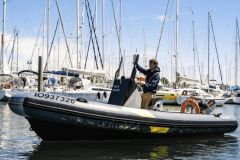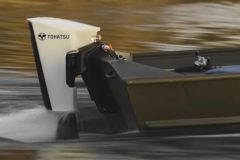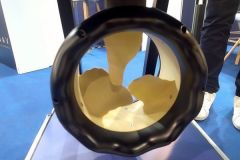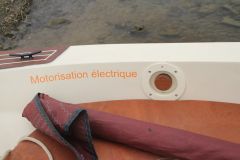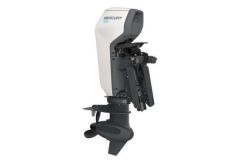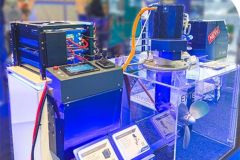Naviwatt, French specialist of electrically propelled boats was present at the Düsseldorf 2020 boat show. BoatIndusty takes advantage of this event to review the development of this propulsion mode and its applications.
Naviwatt, 12 years of experience
From design to construction of electric boats, Naviwatt offers a range of RIBs, monohulls and catamarans mainly for professional use.
Created in 2008 and based in Arzon in the Gulf of Morbihan (56), the team of 8 people including 3 naval architects works on all aspects of electric propulsion. In its 12 years of existence, Naviwatt has produced about forty electrically propelled boats.
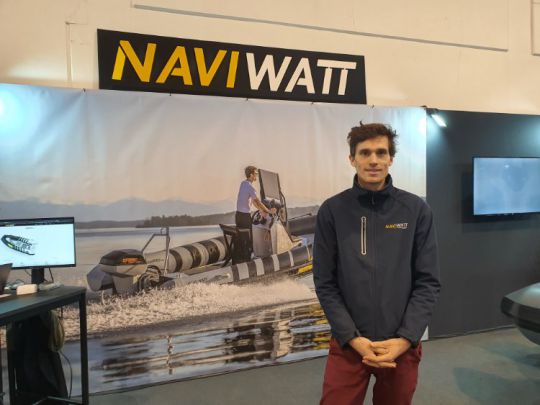
Adapt the boat to electric propulsion.
Laurent Bérenger, in charge of Naviwatt's business development, gets to the heart of the matter: "We quickly realized that equipping an existing hull with electric propulsion was not the right approach. You should not install an electric propulsion system in a boat that is not designed for this type of motorization. All experiments, especially on RIBs, have resulted in poor performance
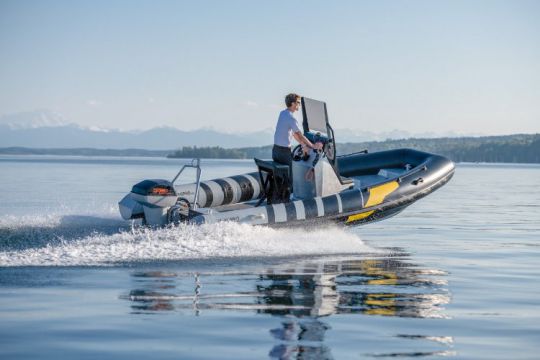
For Laurent Bérenger, electric propulsion is divided into 2 main topics:
- The design of the electric propulsion integrating motors, batteries, chargers and all the related environment.
- The sailing program that will determine the boat design.
For each project, the team of naval architects develops a specific all-electric propulsion concept for each use. For 12 years Naviwatt has made this a specialty.
At the very beginning of the shipyard's activity, Naviwatt manufactured small pleasure boats for rental propelled by a 4 kW motor, i.e. less than 6 hp, then passenger transports of 15 m in size propelled by 2 motors of 20kW (less than 30 hp) each, for a speed of 12 to 15 km/h (8 knots), a power that is low enough to offer a day's autonomy of operation.
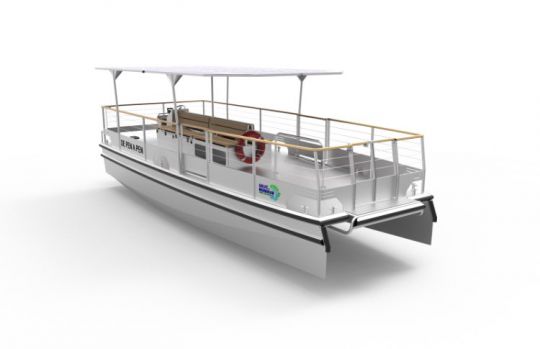
For some applications, electric propulsion is the right choice: " The electric propulsion is adapted to predictive uses with a constant daily consumption without being high "says Laurent Bérenger.
" Depending on the use, it is possible to consume a lot of fuel (gasoline or diesel) during the year, even if the daily consumption remains low. In this case, electric propulsion becomes financially interesting and many professionals have converted to electric propulsion, especially in passenger transport in "closed areas" such as ports. Thus, electrically powered passenger shuttles work very well. The daily use generates a low energy consumption, which is important in the long run. In the long run, a financial saving is realized e", insists Laurent Bérenger.
" The main advantage of electric propulsion is the comfort of use, the low maintenance, and the maneuverability thanks to its wide range of use compared to a combustion engine. An electric motor can operate at very low speed with a high torque available immediately "Laurent Bérenger adds.
Unfortunately, for a typical intensive maritime use, i.e. intensive, over a short period of time - i.e. consuming a lot during a day and little over the year - electric propulsion is not necessarily adapted.
Define the need before designing
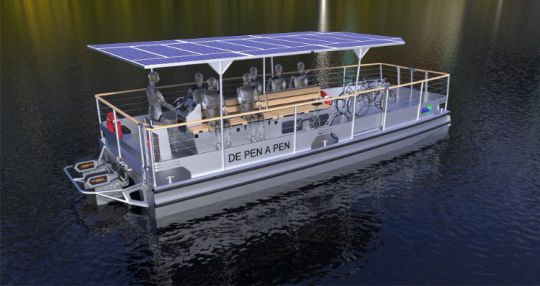
Thus, for each boat project, Naviwatt starts by defining a need and then draws up a set of specifications that will define the storage and then the propulsive power, and then the boat is developed to be as light and efficient as possible in terms of the hull for its specific use. For example, for a semi-rigid boat likely to go out to sea, a fairly pronounced V hull will be preferred, whereas for a boat that stays in flat, calm waters, it is not necessary.
Improvements needed
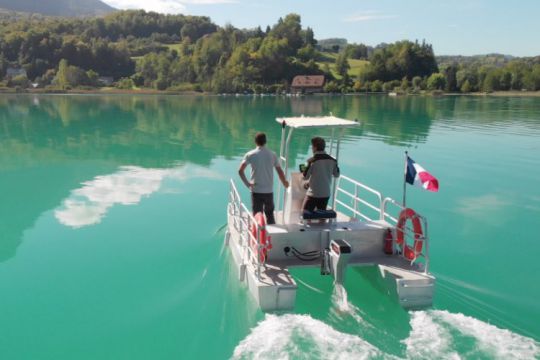
Naviwatt assumes that the production of electricity remains on land, even if some boats are almost autonomous (but this is a small minority). The charging time and the storage of electricity remain the necessary points of improvement for the development of electric propulsion.





